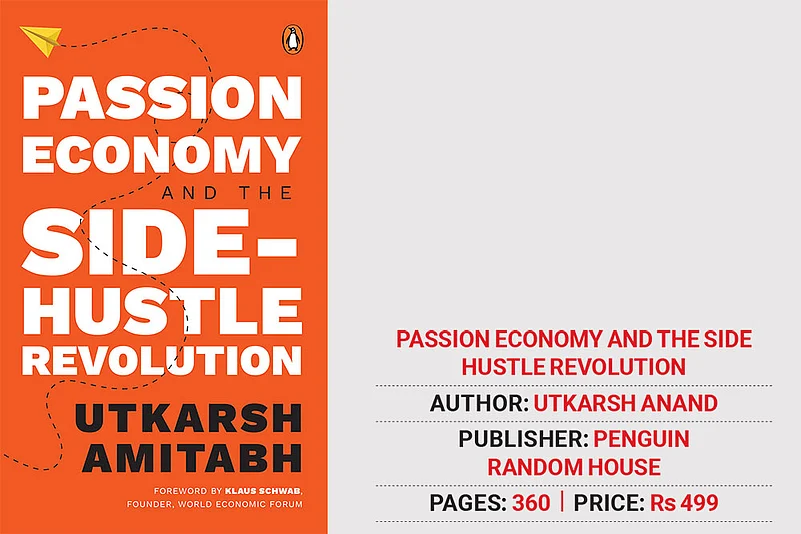I learned about Savitri and Sanatan Mahto, a brother–sister duo who achieved serious fame on TikTok, from a report published by online journal Rest of World. They live in a tiny hamlet called Nipania in the state of Jharkhand, miles away from the faintest of signs of urbanization. Going to a restaurant means walking 15 miles on a long, meandering dirt road.
They started using TikTok in 2018 and amassed 2.7 million followers who were charmed by their singing and dancing on local tunes. The Mahtos could have been making over $2,000 every month from advertising revenues alone, 15 times their monthly income from farming.
TikTok was banned in India in June 2020 as a response to geopolitical tension arising from the Chinese attack on Indian borders in the Northeast. At that time, over 200 million Indians were using the short-form app and many creators like the Mahtos in tier 3 towns and villagers were using the app to create substantial income. Overnight, they lost their most lucrative channel of monetization.
Soon Instagram Reels and a range of other local clones sprung up, but they didn’t quite match the TikTok experience. According to the Rest of World report, rural creators couldn’t relate much to the urban and aspirational feel of Instagram and the local clones didn’t have comparable reach.
I am not saying that India’s decision to ban TikTok was wrong or right. Geopolitical relationships are managed at the governmental level, and I am sure that there are nuances that merit deeper scrutiny. My purpose of writing this chapter is to explain that government decisions and public policy can have a huge impact on how the passion economy evolves and matures.
Even though there will be many more creators like Mahtos creating new income streams online, most governments around the world have not seriously considered the passion economy as a source of employment.
Elected representatives around the world would struggle to define a creator and talk about the framework required to provide a fillip to this new evolving digital landscape. Truth of the matter is that passion economy cannot be an after-thought.
In the post-pandemic world, there is urgent need to create scalable systems and processes which empower creators to build their ventures on the cloud. The market isn’t just restricted to where the creators live. The entire Internet is their oyster.
Creator collaboration across borders can redefine global culture in the times to come. Imagine the spectrum of possibilities if the local creators like the Mahtos collaborate with their counterparts in Europe, North America and Africa! The Internet does offer permissionless leverage to some extent, but policy frameworks are required to scale such partnerships. Things like income tax, local digital regulations and intellectual property rights need to be harmonized and adapted. The larger goal must be to bring down the cost of collaboration so that creators are able to focus on their craft.
Governments also need to understand the challenges of creators today. During the pandemic, the American government created a $15 billion package to help cultural venues. This was a welcome step but happened six months after a bunch of countries had created programmes and schemes to help their creators.
French President Emmanuel Macron was one of the first world leaders to act to help freelance workers in the arts. The French unemployment system might have critics, but it has always recognized the challenges faced by performing artists, including but not limited to seasonality of work. To counter the spectre of the pandemic, France removed the clause which requires a certain minimum requirement of hours of work. France also set up an insurance scheme for TV, theatre and film shoots.
Britain followed France’s footsteps and announced a cultural bailout package worth about $2.1 billion. This corpus saved hundreds and thousands of performing art spaces, theatres, comedy clubs and music venues from closure. Major institutions such as the National Theatre and Royal Shakespeare Company were also given long-term loans which helped keep the creators afloat.
Germany announced a $1.2 billion fund to get cultural life reinvigorated after the pandemic. Its finance ministry developed plans to pay bonus to organizers of smaller cultural events. Austria came up with a similar event insurance policy.
New Zealand, a country with population roughly equalling that of South Delhi, decided to offer $268 million to support creators (especially musicians) over four years. South Korea’s government stepped up to provide almost $280 million to support cultural institutions.
These measures by different governments have some precedents. Just after the Great Depression, the New Deal was announced in America and included concrete measures to overcome unemployment and create a new normal for work. One such measure was Federal Project Number One, which devoted more than $500 million in today’s terms to create employment for artists, musicians, designers, actors and writers. Among other things, the programme wanted to make arts accessible to the broader society.
Bookmarked

Take a look at what’s new in the business section of Amazon’s bookshelf
Unfiltered: The CEO and the Coach
Authors: Ana Lueneburger, Saurabh Mukherjea
Published: February 2023
The book opens up the confidential world of coaching conversations to help readers fully grasp the life-changing impact that coaching can have. The narrative provides unique insights for executives and entrepreneurs.
How Business Storytelling Works
Sandeep Das (March 2023)
Business storytelling can help one remain relevant as a corporate professional. The author looks at various factors to identify the golden principles of storytelling for success.
Multibagger Stocks: How to Multiply Wealth in the Share Market
Prasenjit Paul (March 2023)
The book offers readers a simple yet effective technique to identify the stocks that have the potential to generate stupendous returns. Cutting the clutter and the noise, it answers critical questions related to stock-market investing.
The Power of Humility
P.V. Ramana Murthy (February 2023)
The author provides a fresh perspective on how humble high achievers are rewriting the rules of leadership. The book carries first-hand research and numerous interviews with valuable inputs, insights and experience from thirty eminent business leaders.

























